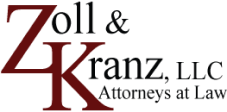Injured By a Generic Drug? FDA Defends New Labeling Proposal
Implanon and Nexplanon are birth control implants manufactured by Merck & Co. Although both perform the same function, Nexplanon is the newest model and has features that the Implanon device lacks.
What Is the Problem with the Implanon Device?
Implanon and Nexplanon are plastic, matchstick-size devices implanted under the skin of a woman. When left in the body, they release etonogestrel, a hormone that stops ovulation.
When it is time to remove the Implanon implant, some have reported that the device has migrated and cannot be found to be removed. This means a woman has to face the risk of continuing to have the device in her body, which may lead to serious injuries or even death.
Merck & Co. has discontinued manufacturing Implanon and have replaced it with Nexplanon. This new device has barium sulphate added to it, which can be seen by an X-ray machine. If the device migrates, doctors will be able to spot where it moved. Additionally, this implant has a new applicator that allows for easier insertion.
Nexplanon is designed to remedy the Implanon defects. Unfortunately, this new device does not help the women that have had the Implanon implant.
If you are suffering from side effects caused by Implanon, contactZoll& Kranz, LLC by calling (888) 841-9623. We will confidentially evaluate your case free of charge.
ZK Law Note:Womens Health Advice says that it should take less than five minutes to remove an Implanon or Nexplanon device.
Zoll & Kranz, LLC–Defective Medical Drug and Device Lawyers
Source: http://www.prweb.com/releases/2014/10/prweb12257939.htmAccording to Reuters, the U.S. Food and Drug Administration (FDA) has gone on the defense over a proposal that would require generic drug makers to update the prescribing information on their products if they become aware of new safety information.
Drug manufacturers have pushed back on the issue, saying it could lead to more lawsuits and a raise in drug costs. However, Dr. Janet Woodcock, the FDA’s top pharmaceuticals official, said the move is needed to “create parity” between branded and generic drug makers regarding labeling changes, according to the AP.
Under the current law, manufacturers of generic drugs are not liable for failing to warn patients under the theory that, since the drugs are suppose to be the same as the brand named products that they are copied from, they only need to contain the same warnings as the brand-name drug.
The agency used to defend the current system, allowing generic manufacturers to be exempt from having to conduct clinical trials or provide full warning disclosures of every known danger, as generic drugs were suppose to be the same as the branded drug being copied. This allowed companies to save on costs.
In 2011, the Supreme Court ruled that the agency’s prohibition on label changes meant generic drug makers should not be held accountable for failure to warn against risk. “As a result, consumers taking a brand name drug can have legal recourse if they are injured by a drug while those taking a generic typically do not,” Reuters reported.
Now, the FDA wants to allow generic manufacturers to make label changes. “The goal is to make sure the whole system is searching for safety problems and updating labels when they are found,” Dr. Woodcock said, according to Reuters.
Consumers should be protected from potentially dangerous drugs regardless of whether or not they are a brand name product.
Generic drugs make up about 80 percent of prescriptions filled in the United States today—it only makes sense that the standards for labeling products should be the same.
If you believe a defective drug has injured you, contact our experienced pharmaceutical drug and device attorneys by calling toll-free (888) 841-9623. Our patient advocates represent victims who have experienced adverse events from dangerous drugs, seeking justice and compensation for those wronged.
Zoll, Kranz & Borgess, LLC – Defective Medical Drug and Device Lawyers
Source: http://www.reuters.com/article/2014/04/01/us-genericdrugs-idUSBREA3025V20140401
